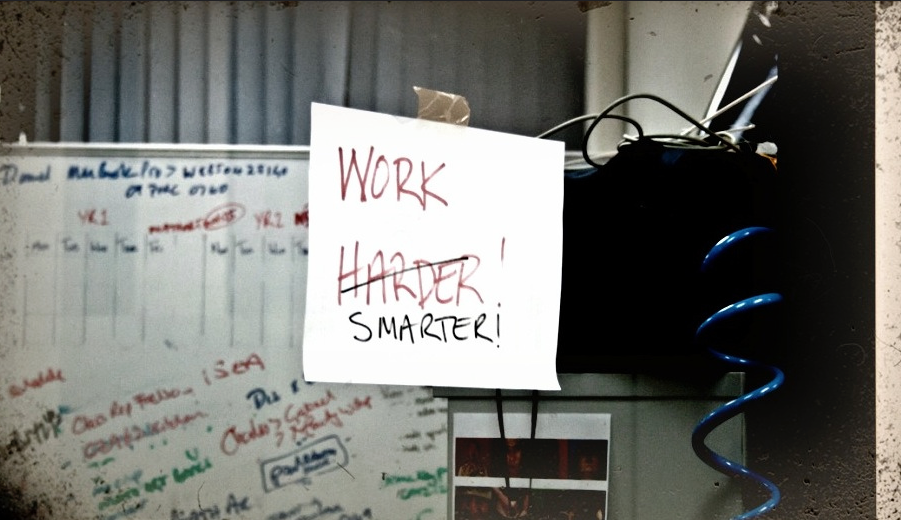5 Tips for Making the Most of Your Time
by Mark Jenney

https://www.flickr.com/photos/alancleaver/2661425133
No matter who you are or what you do, you share a firm reality with everyone else on the planet: you get just 24 hours in a day. What do you do with your time?
It’s so easy to fritter away the days, staring idly out the window and watching the world pass by. It’s also incredibly easy to get distracted from work, as your social media feeds beg to be scrolled through, frivolous magazines wait to be read, and old photos threaten to lead you down a reminiscing wormhole. Before you know it, the day’s done and you’ve accomplished nothing, and it’s a terrible feeling. “Lost time is never found again,” as Ben Franklin is quoted as saying.
You resolve to be better about making the most of your time; you know you should do more, and the regret is consuming. You’ve wasted a precious resource, and you’ll never get it back. Next time, make the most of your time! Here are five tips to help you out.
1. Know yourself — and know your peak hours of efficiency. Some people have a burst of productive energy first thing in the morning, while others are best after lunch, and still others don’t really get going creatively until the sun goes down. The trick to making the most of your time is knowing when your most productive time of the day is, and then using that time to work.
2. Know where your strengths are and where they aren’t. You can be an expert in some things, but you can’t be an expert in all things. If you spend your time doing what you’re good at, you’ll get a lot done, but if you spend your time doing something that just doesn’t come naturally to you, you’ll spend a lot of time not getting much of anything done. Try to use your strengths to your advantage, and delegate other tasks to trusted experts.
3. Have a goal. If you have something to work toward, you’ll focus your energy on it. Knowing what you want to achieve, both short term and long term, will keep you from sitting around wondering what to do next.
4. Stand for something. This may not seem related to making the most of your time, but it truly is. Think of it this way: when you have a cause or a mission, you’ve got a huge life goal to achieve. You know why you were put here on this planet, and that gives you a great sense of purpose. Whether your cause bends toward social justice, religion, healing, or something else, make it a defining part of who you are. It will help you find your way when the going gets tough. And of course, as the old cliché goes, “If you don’t stand for something, you’ll fall for anything.”
5. Stay positive. It’s not easy, but a positive outlook on life — believing that tomorrow will be just as great, if not better, than today — is a strong motivator. Negativity and depression, on the other hand, can significantly slow down productivity. Choose to be happy, choose to be positive, and choose to not let others chip away at your attitude. You’ll find that you’re much more efficient at getting things done .
More than anything, making the most of your time is a habit. If you recognize that you’re always doing your best work from, say, 10:00am to noon and then from 3:00pm to 5:00pm, then create a routine that has you at your desk at those times.
See 7 Habits of Mentally Resilient People by Mark Jenney
And, efficiency begets efficiency — it’s a self-fulfilling prophecy. In other words, if you begin to see yourself as someone who makes the most of your time, then you’ll continue to do so. On the contrary, if you see yourself as someone who isn’t good at getting things done in the time allotted, well, you probably won’t.
These tips should help get you started, though this is by no means an exhaustive list of how to make the most of your time. What works for you? Share a tip in the comments!

